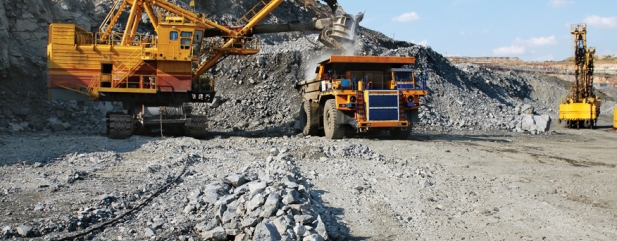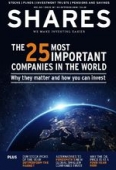Archived article
Please note that tax, investment, pension and ISA rules can change and the information and any views contained in this article may now be inaccurate.
Can mining ever be seen as an ethical investment?

We’re currently in the middle of Good Money Week, an annual event aimed at raising awareness of responsible investment. Its purpose is to highlight how we can use money to benefit society and protect the environment.
While much of the focus has been on the range of companies and investment funds which have a green or ethical slant, my interest has been piqued by the mining sector which is probably the last industry you’d associate with being ethical.
At face value, many people would summarise miners as companies that go to a place of natural beauty and ruin the land in the quest for natural resources. They run dirty, great big machines which pollute the atmosphere and the businesses take most of the rewards in the form of profits for themselves.
This view is certainly open to debate. Ask the government of a resources-rich African country what they think of mining and they’ll probably say such companies should pay higher taxes and local communities should have a greater share of the wealth.
Ask the boss of a mining company for their view and they’ll probably say the local community has significantly benefited from the development of a mining operation compared to days gone by. That’s certainly the view of Dan Betts, managing director of gold miner Hummingbird Resources (HUM:AIM).
AGENTS OF CHANGE
Betts argues that mining companies are ‘agents of change’ by creating employment and teaching skills which can be transferred to different industries once a mine has been depleted. ‘We help local communities by funding health services, schooling and more,’ he comments.
Hummingbird sponsors teachers and nurses in Mali near its mine and it also supports a market garden project where people in the local community can create a viable, sustainable business and one that can also improve the nutrition of families in the community.
Also in defence of the mining sector is the fact that many companies are teaching proper safety standards to locals who used to go it alone. Numerous commercial mines are surrounded by artisanal operations where individuals mine by hand, often in unstable pits and using dangerous explosives which present a risk to life.
Commercial mines will often employ artisanal miners and enable them to develop the mining craft in a safer working environment. Hummingbird says local people account for 90% of its workforce.
Ultimately a good mining operation should provide significant economic benefits to communities and help ensure locals have a higher standard of living. Yet there remain variable standards in the mining industry; those who simply tick the boxes to get environmental and operating permits, and those who go above and beyond.
ESG FOCUS
Investors are playing close attention, much more they’ve ever done, to how mining companies act from an ethical, social and governance (ESG) perspective – and that includes fund managers who are picking mining stocks. A miner may have plenty of riches in the ground, but ultimately the way they do business is just as important as the underlying asset.
What still needs to improve is how so many companies are solely driven by economic returns, with ESG issues being a token afterthought. The old model of filling a depleted open pit with water and saying you’ve helped the environment by creating a lake isn’t enough. Miners need to think more about social engagement and enhancement as they could be the better companies in the long-term from both an ethical and investment perspective. (DC)
Important information:
These articles are provided by Shares magazine which is published by AJ Bell Media, a part of AJ Bell. Shares is not written by AJ Bell.
Shares is provided for your general information and use and is not a personal recommendation to invest. It is not intended to be relied upon by you in making or not making any investment decisions. The investments referred to in these articles will not be suitable for all investors. If in doubt please seek appropriate independent financial advice.
Investors acting on the information in these articles do so at their own risk and AJ Bell Media and its staff do not accept liability for losses suffered by investors as a result of their investment decisions.
Issue contents
Big News
- Aston Martin and Funding Circle endure shaky starts after floating on the stock market
- Housebuilders hit by foreign buyers’ tax plan
- Time to sell Royal Mail shares as the once-attractive dividend looks unsustainable
- Ocado, Just Eat, Rightmove and others selected for new reliable growth’ list
- What Shurgard’s €2.4bn IPO means for UK self-storage plays
- Airline sector still in the danger zone as cost and operational pressures intensify

 magazine
magazine








